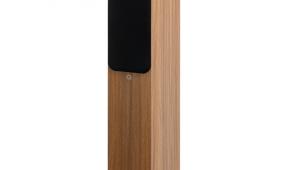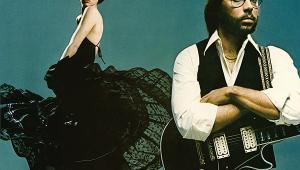Simon & Garfunkel: Bridge Over Troubled Water Page 2
The album went to No 1 before handing over the top slot to their fourth studio album proper, the musically ambitious Bookends.
![]()
Gospel Inspiration
For their next album Simon had written a song obliquely referencing his early days as a songwriter called 'The Boxer', but another new song prompted him to tell his lawyer 'I think I've written my "Yesterday"'. The song, 'Bridge Over Troubled Water', was a hymnal creation, which had been inspired by a 1958 album by gospel group The Swan Silvertones, specifically the song 'Mary Don't You Weep', with its proclamation, 'I'll be a bridge over deep water…'.
Simon was not the most prolific of writers, but another reason that the Bridge Over Troubled Water album took a long time to assemble was Garfunkel being away in Mexico acting in Mike Nichols' film version of Joseph Heller's novel Catch-22, which was running over time. Simon had also been lined up to appear but his part had been cut and he felt rather left behind. He wrote 'The Only Living Boy In New York', which was tinged with melancholy and 'So Long, Frank Lloyd Wright' in which he rather cryptically wished his absent friend well – or was he saying 'so long'?
![]()
For 'El Condor Pasa', Simon wrote the lyrics to a 1913 piece by Peruvian composer Daniel Alomia Robles, itself based on a traditional song. Simon & Garfunkel's version is overdubbed on an instrumental recording arranged by Jorge Milchberg and played by his Andean folk group Los Incas, whom Simon had seen in Paris in '65.
The duo argued over the final track and compromised with a makeweight cover of 'Bye Bye Love' recorded on a recent tour, which, given what was about to happen, took on an unusual poignancy.
'The Boxer', one of the first recordings from the album sessions, had been released as a single in 1969 and became an international Top 10 hit. Simon wanted the upbeat 'Cecilia', a song addressing infidelity, to be the next. But the title track was so highly regarded by the record label that despite its near five-minute length it was released as a single a week ahead of the album.
![]()
Bowing Out
It embodied feelings of hope and redemption at the beginning of the new decade and was a worldwide hit. The album was the best-seller of 1970, spending ten weeks at No 1, and by 1972 it was the best-selling album of all time.
When Simon & Garfunkel won three Grammy awards in 1971 it seemed inevitable that they would go onto even greater things. But Garfunkel wanted to work on another Mike Nichols film, Carnal Knowledge and, apart from the delays that would produce, Simon was convinced that if he became a movie star he would leave anyway.
Another incident that had added to the duo's disharmony was when Garfunkel sang 'Bridge Over Troubled Water' at a show held at the Royal Albert Hall backed by pianist Larry Knetchel. The applause was phenomenal and Garfunkel acknowledged his accompanist. Yet he didn't invite Simon, the song's author, to take a bow.
With no formal announcement or even a discussion, Simon and Garfunkel then drifted apart. Simon told his biographer Robert Hilburn, 'I was hoping for a long career and making good enough records that people would look back on Simon & Garfunkel and say "Oh, this was what you did in the beginning"'.
















































